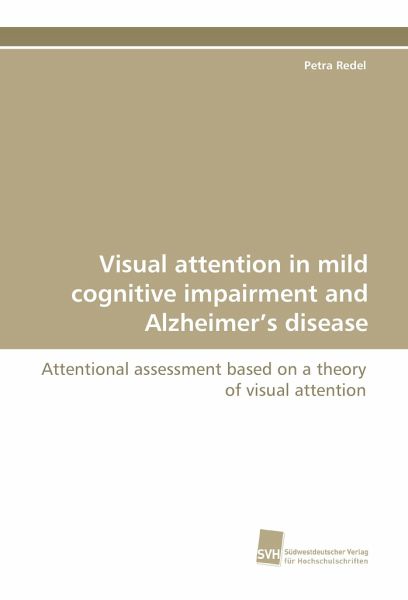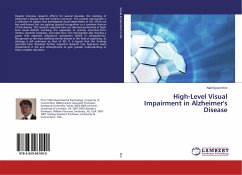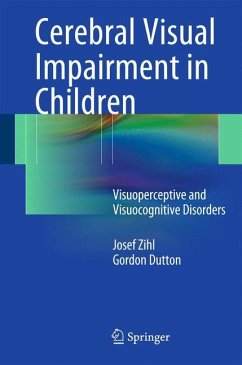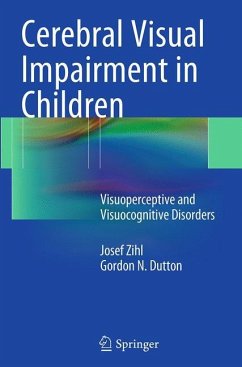
Visual attention in mild cognitive impairment and Alzheimer's disease
Attentional assessment based on a theory of visual attention
Versandkostenfrei!
Versandfertig in 6-10 Tagen
46,99 €
inkl. MwSt.

PAYBACK Punkte
23 °P sammeln!
Are visual attentional functions already impaired at a prodromal stage of Alzheimer's disease (AD), referred to as mild cognitive impairment (MCI)? The present work revealed an elevation of the perceptual threshold already in MCI, while perceptual processing speed and visual short-term memory storage capacity showed a significant decline for AD patients, only. These results indicate a staged pattern of deficits affecting pre-attentive processing in MCI and attentive processing, fitting into the prominent amyloid cascade hypothesis of AD. Parameters of spatial and task-related selection might a...
Are visual attentional functions already impaired at a prodromal stage of Alzheimer's disease (AD), referred to as mild cognitive impairment (MCI)? The present work revealed an elevation of the perceptual threshold already in MCI, while perceptual processing speed and visual short-term memory storage capacity showed a significant decline for AD patients, only. These results indicate a staged pattern of deficits affecting pre-attentive processing in MCI and attentive processing, fitting into the prominent amyloid cascade hypothesis of AD. Parameters of spatial and task-related selection might also function as early cognitive markers since both aspects are already impaired in MCI. In carriers of the ApoE4 allele (higher risk of AD), a spatial lateralization towards the left visual hemifield was revealed. The bias was the more pronounced the earlier disease onset. These results indicate that impaired task-related selection may be linked to early dysfunction of fronto-parietal attentional networks. Accompanying, PET imaging results suggest that an early interhemispheric asymmetry in temporo-parietal cortical interactions might cause this pathological spatial bias.












